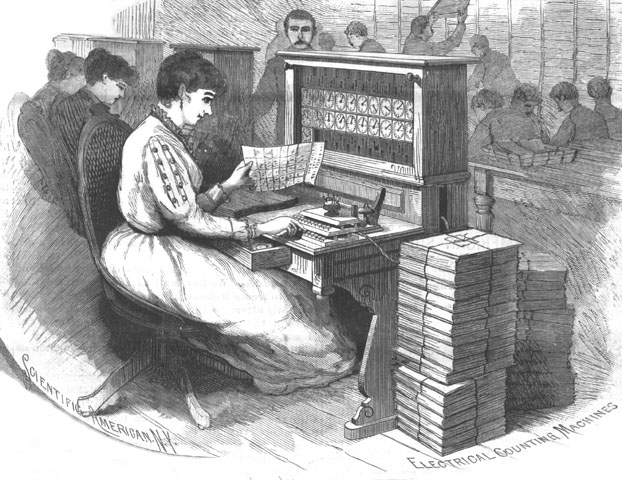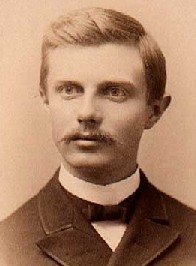
Closing the American Frontier
The Turner Thesis

In 1890 the superintendent of the U.S. Census announced that rapid western settlement meant that “there can hardly be said to be a frontier line.” In just a quarter century, the far western frontier had been settled. Three million families started farms on the Great Plains during these years.
Contrary to the popular image of the West as a rural region, by 1890 most of the West’s population lived in cities. Not only was the Trans-Mississippi West the country’s most culturally diverse region, it was also by 1890, the most urbanized.
In 1893, three years after the superintendent of the Census announced that the western frontier was closed, Frederick Jackson Turner, a historian from the University of Wisconsin, advanced a thesis that the conquest of the western frontier had given American society its special character. At the Columbian Exposition in Chicago, marking the 400th anniversary of Columbus’s discovery of the New World, Turner argued that the conquest of the western frontier was the nation’s formative experience, which had shaped the nation’s character and values. Western expansion accounted for Americans’ optimism, their rugged independence and democratic spirit, their individualism and emphasis on freedom and nationalism, and their stress on adaptability, ingenuity, and self-reliance. The Western frontier, he also suggested, served as a safety valve that prevented the United States from developing the bitter and often violent class conflicts found in Europe.

In actuality, however, the settlement of the West had depended, to a surprising degree, on intervention by the federal government. The federal government had dispatched explorers to survey the region and cavalry units to confine Native Americans on reservations. It also provided land grants that funded railroad building, and, in the twentieth century, support for dams and other waterworks.
In his address on the significance of the frontier in American history, Turner referred to the Census Bureau’s announcement that the frontier was now closed. He speculated that now that the frontier was settled, a crucial epoch in American history was over.
The historian Frederick Jackson Turner argued that the American frontier helped to forge the qualities associated with the American character, both those that are positive, such as the country’s egalitarianism and dynamism, and its more negative characteristics, such as the nation’s propensity toward violence.
When John F. Kennedy accepted the Democratic presidential election in 1960, he called on the country to enter a new frontier. Since that time, Americans have repeatedly searched for new frontiers—in outer space and cyberspace and even below the ocean’s surface. The frontier remains a potent symbol more than a century after it physically disappeared. Even today, many share Turner’s concern that in the absence of frontiers, the nation will lose its energy, boldness, rejection of limitations, and faith in new beginnings.
Forces for expansion
It took 200 years for Americans to reach the Mississippi River, but just 30 years to settle the trans-Mississippi West.